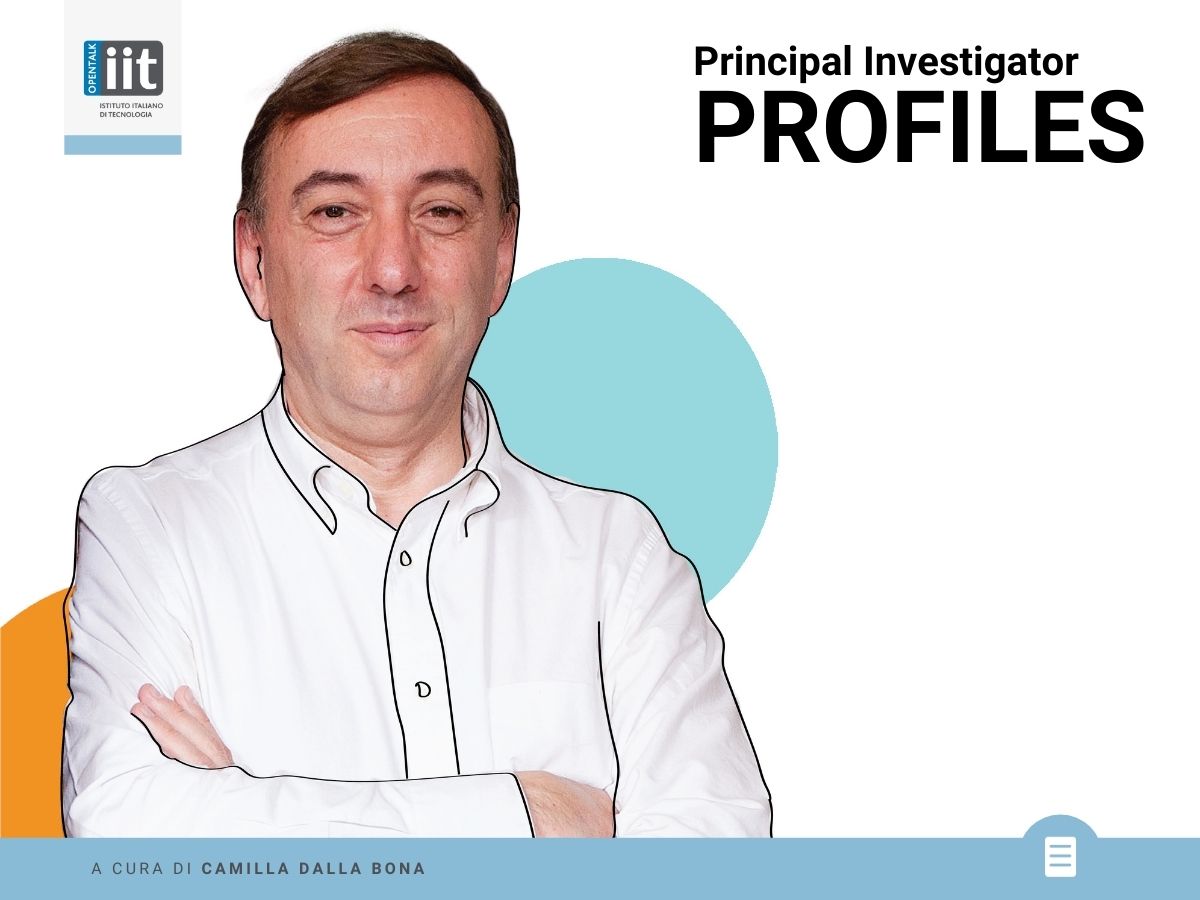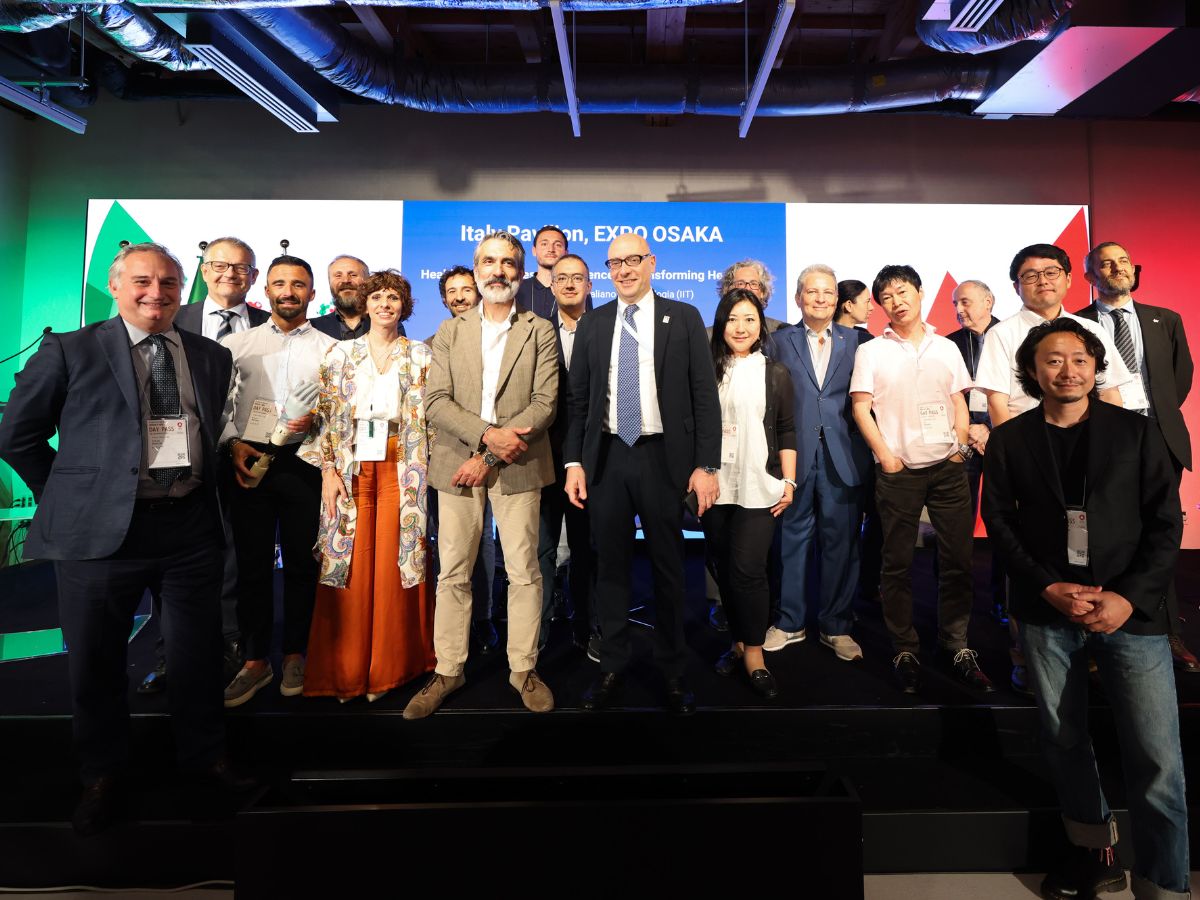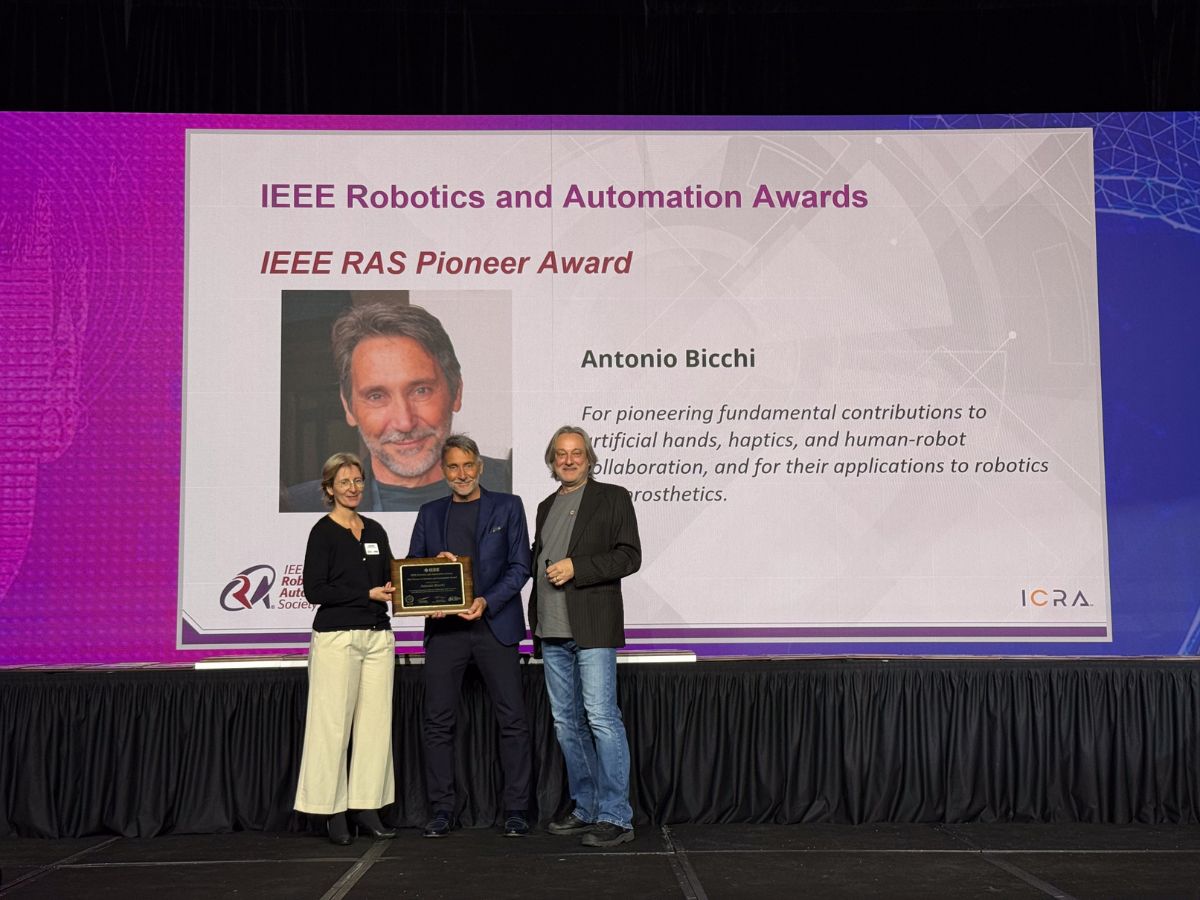Interview with Giancarlo Rucco, Coordinator of the IIT Center for Life Nano- & Neuro-Science
Name: Giancarlo
Surname: Ruocco
Place of birth: Rome, Italy
Role: PI, Coordinator of the Center for Life Nano- & Neuro-Science
What does your research team do? I began my scientific career by studying things which – though having potential applications – were very abstract: the dynamics of atoms and molecules in liquids and glass. I moved on to the study of an unusual state of matter – midway between liquids and glass – which is known as “soft matter”, and then progressed to my current area of study: the application of knowledge acquired in the study of disordered matter such as liquids and glass, to biological materials.
When you were younger, was this the job you had in mind? Yes, precisely this. I was thinking about what I would have done, or rather, what I am trying to do: discovering how things work, from a washing machine taken apart amidst the shouts of my parents, to the motorbikes reduced to their component parts and then put back together again, right through to trying to improve a microscope that would help us to understand how proteins assemble themselves.
That time you would have wanted to drop everything and do something else: One day, perhaps.
“Publish or perish”. How does the pressure to publish influence your days and your professional choices? Not very much. I dedicate attention to this when I am thinking of younger people and about the fact that they will have to live in a world that is changing, in which “P. or P.” has become the passkey. But in actual fact, I have become sure that they, young people, can change the world, instead of having to endure its negative aspects. And I pass my message on to them: make sure you enjoy yourself while you are doing your work, and everything will arrive automatically.
When did you realise you were going in the right direction? I would never be so presumptuous to believe that I am going in the right direction, but I am presumptuous enough to think that the direction in which I am going is, by definition, the right one for me.
What is your next goal? To continue doing what I am doing, enjoying myself searching for new things that, perhaps, may even be useful for someone.
What is the toughest aspect of your job? Handling human relations with colleagues, young people, students. The human psyche is far too complex a system to be categorised and managed in consequence.
Senior researchers necessarily have to deal with many bureaucratic aspects. Apparently, this aspect does not fit well with the research activity. How is that for you? I consider it a fundamental component of research activities, a concept that is neither evident nor inborn, but something that has to be acquired with the passage of time.
Who should invest more in research compared to what is done today? Research “pays dividends”, but in the long term, longer than the average life of a government. If we add to this the fact that in Italy, and further afield, we are going through a historic phase of chronic scientific illiteracy, it is obvious that hoping for adequate public finance for research is pure illusion, and in fact the major sources of finance are at a European community level, rather than national. Conversely, the companies that can invest resources in consideration of medium-long-term time scales are beginning to understand the significance of the returns that can be obtained from even a small investment in research and innovation.
Do people talk about science outside the labs and the academic world? Unfortunately, at this moment in time, people talk about it, but in the wrong way. Scientific illiteracy has reached dramatic levels. Most people and policy makers have no idea about the message of science, and I am not referring just to the content of this message, but rather to the very meaning of scientific message. I can explain the concept with an example familiar to everyone in this period: addressing the public and saying “we have to get vaccinated” is not important; what is important is explaining that behind this phrase there is a long sequence of thought, connections, experiments, “trials and errors”, therefore the scientific procedure, which has led to this conclusion. And this lack of understanding is entirely the fault of ourselves as researchers, with no excuse at all.
Who gave you the most important advice during your journey? Contacts with young people, students, those who turn to you as a point of reference.
What would you say to the younger you finishing his PhD: fly like a free spirit, think uniquely about doing the research that you like doing.
Is working in different countries essential for a researcher? Every country has its own system, with positive and negative aspects, and getting to know many countries broadens the mind. But this does NOT mean that it is absolutely essential to visit many. I don’t agree with the xenophilic dogma that “it’s nicer away”. Italy is a country that offers people who want to do research many things that other countries cannot provide. Not accepting this, and wanting to proclaim experience abroad as an absolute value, is the truly provincial attitude that we are currently witnessing. I don’t accept this value, I have never believed that young people who go abroad are better than those who stay here. On the contrary, in an ecosystem with limited resources, I try to keep those whom I consider the best right here in Italy.
You can improve one aspect of research in general. Which one would you choose?With a magic wand? The general public’s opinion of research. In terms of practical work? Creating a climate of cooperation, at all levels, personal and institutional.





